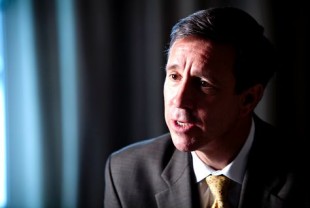

Marriott boss blasts US sequester

The president and CEO of Marriott International, one of the world’s largest hotel groups, has criticised the US's so-called sequester as a failure of American politics and warned it is likely to have a significant impact on the travel industry.
Commenting on the US$85bn worth of government spending cuts that took effect on March 1, Arne Sorenson said the longer the stalemate between Democrats and Republicans lasts, the deeper the impact.
“We think that the sequester will be bad; it will be bad for business travel, it will be bad for the US economy and the longer it lasts [and] the more antagonistic the two parties are, the worse it will be,” he told Arabian Business.
“It is certainly within their power to address these budget issues fairly quickly if they were responsible about it. If it were done fairly quickly I don’t think we would have a significant impact on the economy.
“It’s frustrating because I think generally the US is economy is recovering and is poised to do quite well and it’s as if the political system is trying to keep it down. Make no mistake it is a failure of our political system,” he added.
US-based Marriott International, which manages 3,700 properties globally, is often seen as a bellwether for the global travel industry.
The firm, which counts Ritz-Carlton, Residence Inn and Courtyard by Marriott amongst its brands, said last month it expects revenue per available room (revPAR), a key metric that measures hotel health, to rise 4 to 7 percent this year.
Marriott said it had kept the forecast conservative on fears that federal budget cuts will limit North American demand.
“There is nothing in the business we can see today that would cause me to go out and say 4 percent revPAR growth, but March 1 is coming and we will have to see what Congress does,” Marriott spokesperson, Laura Paugh, said in February.
US president Barack Obama on Saturday said he is looking for compromise in the coming months to end a two-year fight with Congress over how to reduce the US deficit.
At issue is the stalemate over the US budget and how to reign in growth of the US$16.7 trillion federal debt. While Democrats want to narrow the fiscal gap with spending cuts and tax increased Republicans oppose raising taxes and want to do it all with cuts.
The sequester could cost around 750,000 jobs by the end of the year, most of them in the private sector, according to the Congressional Budget Office.
The International Monetary Fund earlier in the month warned that if the cuts are fully implemented, it could shave off more than half a percentage point from growth for 2013.